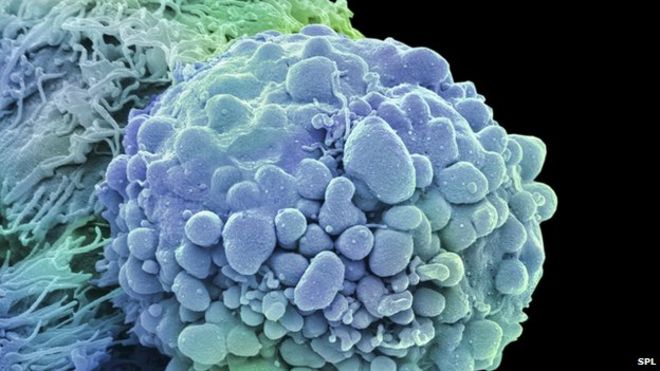
Do you ever just slog through the day doing the tasks you know you have to do, meeting your responsibilities, but not having fun? Does it seem like fun is something you had before you had kids? You used to be able to take the time to enjoy life, but not anymore.
Or maybe it hasn’t gotten that bleak for you yet. Maybe you’re pretty happy with your life. Yet you know you could do better. There is a niggling voice (it might be the one that comes up at 3am when you’re trying to sleep) that says “You’re capable of more than this. This isn’t the life you’re fully supposed to live.”
If either of these scenarios resonates for you, I invite you to try the following 6 steps to create the life you want. For each step, imagine you are the client answering the questions.
1) Dream into Your Vision
You have to have a vision. This can be harder than you think. You can start by asking “What do I want?” And then asking again “What do I really want? What does my ideal look like, smell like, taste like, and feel like? What am I doing in my ideal life/job/relationship? Who am I with?” Walk through your ideal day and then your ideal week. Imagine yourself at the end of your ideal year. How do you feel? What’s happening?
In order to achieve something, you have to be willing to imagine it is possible. Without a strong vision that tugs at your heart, resonates with your emotions, and probably scares you a little, you won’t be able to create the life you want. Write it down in the present tense.
Example: I help people manifest their human potential while neither getting stuck in nor denying fear. I am enough to be a successful business woman; a loving, present mother; a wonderful, orgasmic lover; a dedicated, helpful member of my community, and strong in my self-care.
2) Identify Blocks and Obstacles
Imagine yourself in your vision. Feel how amazing it feels.
Now notice why you can’t have it.
What’s standing in your way? What’s wrong with you? What’s the state of the world around you that means you can’t live your life this way? What people aren’t supporting you? What do you believe about yourself?
Example: My husband doesn’t support me. The kids interrupt me all the time. My work is too big to do part time. There’s not enough time to be all those things fully. Maybe I could do it if I never needed to sleep, but then I’m not doing my self-care.
3) Get to Know Your Underlying Beliefs
What’s do you tell yourself about you? What do you tell yourself about the world? Underlying beliefs can be hard to see because they are the very fabric of your worldview. You’ve forgotten that they are beliefs and believe instead that they are the truth about you, the world, and the people around you.
Like the layers of an onion, there are most likely layers to the underlying beliefs. Take your time letting them in and don’t dig too hard. These beliefs usually exist as strategies to keep you safe. Taking time to uncover and work with underlying beliefs allows your system to adjust to a new reality.
Example:Top layer: If I really want all of those things, then I’ll have to do each of them less than I really want.
Next layer: I don’t really make much of an impact anyway. No one really cares what I say or do.
Next layer: Staying small keeps me safe. I want things I shouldn’t want.
Core belief: I’m not enough. My desires aren’t trustworthy.
4) Work With Your Underlying Beliefs
Just admitting what the underlying beliefs are can be powerful. You may also want to use some tools specifically designed to shift or change these beliefs.
There are many good transformational tools. After many years of searching and applying a wide variety of techniques,
"nofollow">my favorite is Inner Empathy. This is a guided process for spontaneous self-correction. The underlying beliefs and patterns change because your system feels safe and listened to enough to allow change to happen. In my experience this often
takes time.
Other good techniques include The Work of Byron Katie, Radical Honesty, meditations from the book The Diamond Cutter, the Dicken’s Technique, and countless others.
Working with underlying beliefs is often slippery and non-linear. Thus the following is a condensed and simplified example.
Example: We start with the belief “Staying small keeps me safe because I’m not good enough to be big.” We find parts that are terrified of being overwhelmed or persecuted. They feel scared, tired, defensive, and annoyed. They just want to be left alone.
Then they let us know they want to be seen and celebrated. They want to be safe. They don’t like being small but they think they have to be.
They truly believe that if they are big and make mistakes they will hurt someone or will become the target of a media or government witch hunt. “Persecution is rarely just or sane. Far better to be small than to risk that,” they say.
These parts are imagining the full realization of the dream without acknowledging the personal growth necessary to manifest it. “What if we just took the next steps for each of those things?” a curious part of you might ask. “What if we acknowledge that we will change and learn as we walk the path to manifesting that vision?”
The scared parts soften. A shift happens as they open to the possibility that the capacity of the whole person will expand by practicing the steps to manifest the full vision. They can see that some of that has already been happening. For today, that small shift is enough.
5) Enjoy the Changes
As you come out of the session, your face is noticeably more relaxed, your energy softer and more open. In the next couple of days you may find yourself being more assertive, clear, and loving without any specific extra effort.
6) Keep Doing the Work
It’s so tempting to hope that once is enough and check ‘inner work’ off of your ToDo list. However, personal growth rarely works that way.
It’s perfectly fine to rest and take time to integrate changes. But over time the benefits wan and the insights fade. In my opinion, inner work is part of self-care. In order to show up in the world with ease and grace while manifesting your potential you’ll need to do your inner work.
Limiting beliefs and ways of being get reinforced by the culture around us and by the upbringing we hold in our cells. It takes effort and love to manifest something different than what we were taught as children and what we see on TV.
Example: “Oh, I felt great after my coaching session but it didn’t really work because my kids aren’t behaving, I haven’t had sex in 2 months, and my boss is so unfair.”
When you hear yourself saying anything like that, it’s time to go back to Step 1. Read your vision. Get inspired. Then do the work to manifest it.
Does it take time to do this work? Yes.
Is it worth it? You bet!
[About the author: Kassandra Brown is a parent coach, mother, lover, and communitarian who values self-care. If you like something you read here, let her know in the comments below or visit "nofollow">http://parentcoaching.org. Image: Ian Sane]















 PHOTO: A photo of weapons allegedly purchased by Alexander Ciccolo was entered into evidence.
PHOTO: A photo of weapons allegedly purchased by Alexander Ciccolo was entered into evidence.
 PHOTO: Federal agents search a home in Adams, Mass. on July 4.
PHOTO: Federal agents search a home in Adams, Mass. on July 4.









